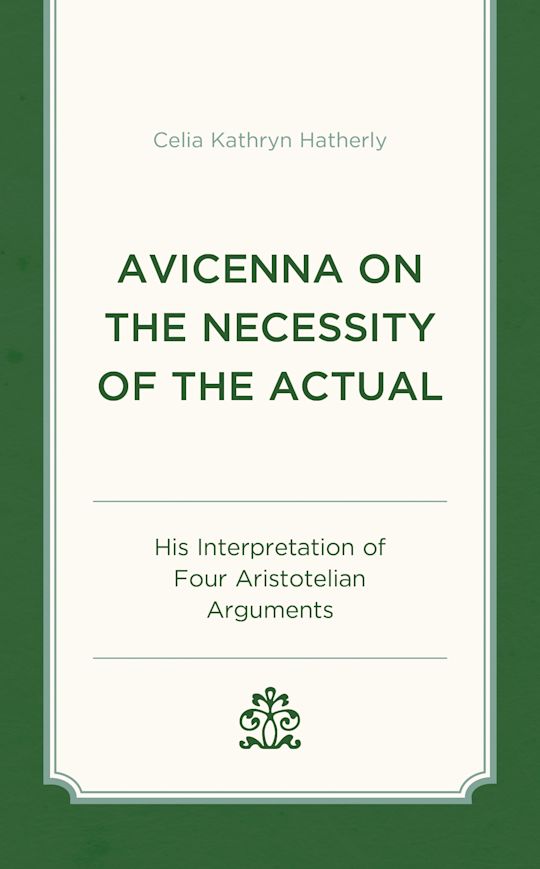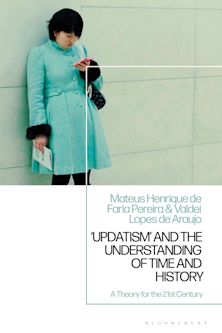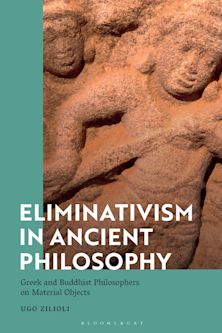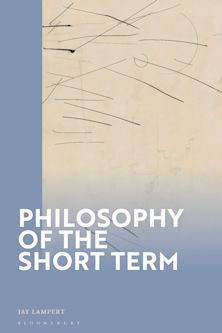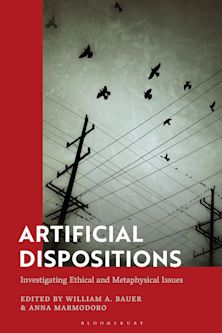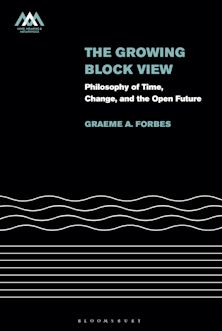- Home
- ACADEMIC
- Philosophy
- Metaphysics
- Avicenna on the Necessity of the Actual
Avicenna on the Necessity of the Actual
His Interpretation of Four Aristotelian Arguments
Avicenna on the Necessity of the Actual
His Interpretation of Four Aristotelian Arguments
You must sign in to add this item to your wishlist. Please sign in or create an account
Description
According to Avicenna, whatever exists, while it exists, exists of necessity. Not all beings, however, exist with the same kind of necessity. Instead, they exist either necessarily per se or necessarily per aliud. Avicenna on the Necessity of the Actual: His Interpretation of Four Aristotelian Arguments explains how Avicenna uses these modal claims to show that God is the efficient as well as the final cause of an eternally existing cosmos. In particular, Celia Kathryn Hatherly shows how Avicenna uses four Aristotelian arguments to prove this very un-Aristotelian conclusion. These arguments include Aristotle's argument for the finitude of efficient causes in Metaphysics 2; his proof for the prime mover in the Physics and Metaphysics 12; his argument against the Megarians in Metaphysics 9; and his argument for the mutual entailment between the necessary and the eternal in De Caelo 1.12. Moreover, Hatherly contends, when Avicenna's versions of these arguments are correctly interpreted using his distinctive understanding of necessity and possibility, the objections raised against them by his contemporaries and modern scholars fail.
Table of Contents
Part One: God as The First Cause of Existence
Chapter One: The Modal Distinction in the Proof from the Metaphysics of the Healing
Chapter Two: The Modal Distinction in the Proof in the Metaphysics of the Salvation
Part Two: God as The Ultimate Final Cause
Chapter Three: The First Efficient Cause as the Ultimate Final Cause
Chapter Four: The Role of the Proof from Motion
Part Three: The Eternity of the World
Chapter Five: Material Potency as a Principle of Change
Chapter Six: The Eternal and the Generable
Product details
| Published | Sep 28 2022 |
|---|---|
| Format | Ebook (PDF) |
| Edition | 1st |
| Extent | 1 |
| ISBN | 9781978782785 |
| Imprint | Lexington Books |
| Illustrations | 1 tables; |
| Publisher | Bloomsbury Publishing |
About the contributors
Reviews
-
The book is very well organized, and each part begins with preliminary remarks, which give the necessary context. Hatherly successfully unpacks Avicenna’s arguments, which often are very compact and at times elliptical. Her spelling out all the steps and clarifying how at times her interpretation differs from that of previous scholars are very illuminating. Yet, she does not get lost in detail; she always focuses on what the argument is designed to achieve and is not uncritical of them. She also makes good use of the Greek commentators, who already at times departed from Aristotle and began to adapt his arguments for their own purposes. Furthermore, she shows a mastery of the secondary literature and clearly highlights her own take on several debated issues with both clarity and courtesy.
Notre Dame Philosophical Reviews
-
Celia Kathryn Hatherly’s Avicenna on the Necessity of the Actual: His Interpretation of Four Aristotelian Arguments is a careful study of three closely related issues in Avicenna’s philosophical theology, namely, how Avicenna’s Necessary Existent is an efficient and final cause and its causal relation to the cosmos. While the arguments are well-known, Hatherly brings fresh insights into all three areas. Her analysis of the Necessary Existent’s final causality is particularly noteworthy, since she offers the most detailed study of that topic available to date. Both novices and veterans of medieval Islamic philosophy will find the book clear, accessible and intellectually stimulating.
Jon D. McGinnis, University of Missouri, St. Louis

ONLINE RESOURCES
Bloomsbury Collections
This book is available on Bloomsbury Collections where your library has access.








